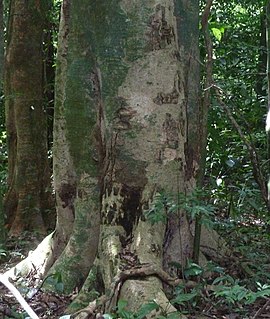
Abarema adenophora is a species of plant in the family Fabaceae. It is native to Northern South America, Costa Rica, and Nicaragua.
Abarema agropecuaria is a species of plant of the genus Abarema in the family Fabaceae.
Abarema alexandri is a species of plant of the genus Abarema in the family Fabaceae. It is endemic to Jamaica, where it can be found in woodland or thicket on limestone soils.
(this is a article on a plant)
Abarema barbouriana is a species of plant of the genus Abarema in the family Fabaceae.
Abarema campestris is a species of plant of the genus Abarema in the family Fabaceae.
Abarema ferruginea is a species of plant of the genus Abarema in the family Fabaceae.
Abarema floribunda is a species of plant of the genus Abarema in the family Fabaceae.
Abarema gallorum is a species of plant of the genus Abarema in the family Fabaceae.

Abarema jupunba is a species of plant of the genus Abarema in the family Fabaceae.
Abarema langsdorfii is a species of plant of the genus Abarema in the family Fabaceae.
Abarema levelii is a species of plant of the genus Abarema in the family Fabaceae.
Abarema macradenia is a species of plant of the genus Abarema in the family Fabaceae.
Abarema microcalyx is a species of plant of the genus Abarema in the family Fabaceae.
Abarema mataybifolia is a species of plant of the genus Abarema in the family Fabaceae.
Abarema obovalis is a species of plant of the genus Abarema in the family Fabaceae.
Abarema oppositifolia is a species of plant of the genus Abarema in the family Fabaceae.
Abarema piresii is a species of plant of the genus Abarema in the family Fabaceae. The species can be found in the state of Pará in northern Brazil.
Abarema ricoae is a species of plant of the genus Abarema in the family Fabaceae.
Abarema zolleriana is a species of legume of the genus Abarema in the family Fabaceae.

